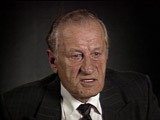
Oral History
Browse an alphabetical list of survivors’ oral histories. These interviews describe firsthand accounts and personal experiences during the Holocaust and World War II.
<< Previous | Displaying results 21-25 of 25 for "Oral History" | Next >>
-
Joseph Stanley Wardzala describes forced labor in Hannover
Oral HistoryJoseph and his family were Roman Catholics. After Germany invaded Poland in 1939, roundups of Poles for forced labor in Germany began. Joseph escaped arrest twice but the third time, in 1941, he was deported to a forced-labor camp in Hannover, Germany. For over four years he was forced to work on the construction of concrete air raid shelters. Upon liberation by US forces in 1945, the forced-labor camp was transformed into a displaced persons camp. Joseph stayed there until he got a visa to enter the…
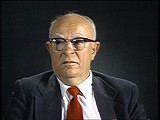
-
Joseph Stanley Wardzala describes the badge Poles had to wear in forced-labor camps in Germany
Oral HistoryJoseph and his family were Roman Catholics. After Germany invaded Poland in 1939, roundups of Poles for forced labor in Germany began. Joseph escaped arrest twice but the third time, in 1941, he was deported to a forced-labor camp in Hannover, Germany. For over four years he was forced to work on the construction of concrete air raid shelters. Upon liberation by US forces in 1945, the forced-labor camp was transformed into a displaced persons camp. Joseph stayed there until he got a visa to enter the…
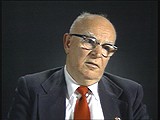
-
Judith Meisel describes arrival at the Stutthof camp
Oral HistoryUpon her father's death, Judith and her family moved to Kovno. Soon, they were confined to the ghetto, which the Germans formed in 1941. Judith, her mother and sister were deported to Stutthof, where her mother died. Judith and her sister escaped from a death march out of Stutthof. They posed as non-Jews, found farm work and eventual refuge in Denmark. Their brother survived Dachau.
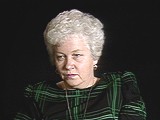
-
Judith Meisel describes smuggling food as a child into the Kovno ghetto
Oral HistoryUpon her father's death, Judith and her family moved to Kovno. Soon, they were confined to the ghetto, which the Germans formed in 1941. Judith, her mother and sister were deported to Stutthof, where her mother died. Judith and her sister escaped from a death march out of Stutthof. They posed as non-Jews, found farm work and eventual refuge in Denmark. Their brother survived Dachau.
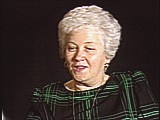
-
Julian Noga describes conditions in Flossenbürg
Oral HistoryJulian's Catholic parents had settled in the United States, but his mother returned to Poland. In 1939, Julian was deported to Austria to do farm labor after he was caught for hiding a rifle. On the farm he met the landowner's daughter, Frieda, his future wife. He was arrested in 1941 because relationships between Austrians and Poles were considered illegal and in 1942 he was deported to the Flossenbürg camp in Germany. During a forced march in 1945, he was liberated by US forces. Julian and Freida…
